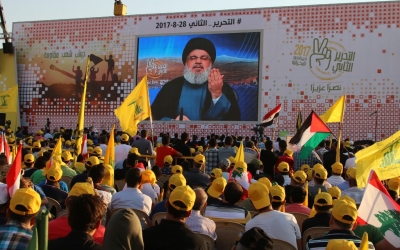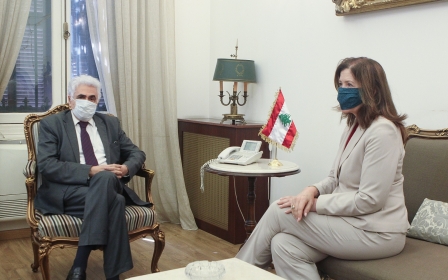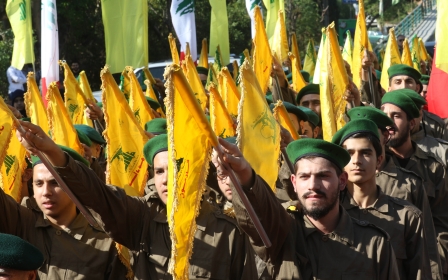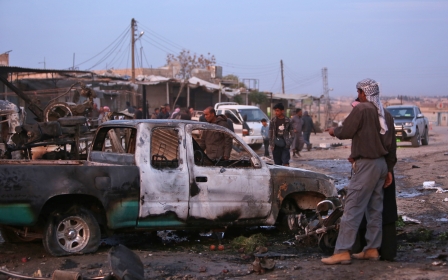Hezbollah says all-out war with Israel unlikely in coming months despite rising tensions
The deputy leader of Lebanon's powerful Hezbollah movement on Sunday dismissed the prospect of an escalation of violence between the Iran-backed movement and Israel despite increased tensions in the last week.
"The atmosphere does not indicate a war … It's unlikely, the atmosphere of war in the next few months," Sheikh Naim Qassem said in an interview with the Lebanese television station Al-Mayadeen.
Tensions rose along Israel's frontier with Syria and Lebanon after Lebanon's Hezbollah said one of its commanders had been killed in an apparent Israeli strike on the edge of Damascus last week.
Israel later sent a message to Hezbollah saying it had unintentionally killed one of the group's fighters in the strike, Al-Mayadeen reported on Saturday night.
Hezbollah on Tuesday had blamed "Zionist aggression" after commander Ali Kamel Mohsen had been killed when Israel had hit the positions south of Damascus on Monday night.
In the message, reportedly sent to the Lebanese group via the United Nations, Israel told Hezbollah that it was unaware that the group's fighters were in the target area.
It further warned the group against retaliation, according to the report from Al-Mayadeen.
Hezbollah, meanwhile, confirmed that it had received the message but denied any Israeli threats.
After two Hezbollah members had been killed in Damascus in August 2019, Hezbollah leader Sayyed Hassan Nasrallah had vowed that the group would respond if Israel killed any more of its fighters inside Syria.
The Israeli military has since boosted its forces on its northern front.
On Sunday, an Israeli drone crashed inside Lebanon during operational activity along the border, an Israeli military spokeswoman said.
Israel has stepped up strikes on Syria in recent months in what western intelligence sources say is a shadow war approved by Washington that has undermined Iran's military power in the region without triggering a major increase in hostilities.
Hezbollah has deployed fighters in Syria as part of Iranian-backed efforts to support President Bashar al-Assad in a conflict that spiralled out of protests against his rule in 2011.
The bases in eastern, central and southern Syria which Israel has hit in recent months are believed to have a strong presence of Iranian-backed militias, according to intelligence sources and military defectors familiar with the locations.
Analysts say Hezbollah and Israel want to avoid an all-out conflict at a time of regional tensions and keep rules of engagement drawn up since the Iran-backed movement fought a one-month war with Israel in 2006.
"There is no change of rules of engagement and the deterrent equation with Israel exists and we are not planning to change it," Qassem said.
Middle East Eye delivers independent and unrivalled coverage and analysis of the Middle East, North Africa and beyond. To learn more about republishing this content and the associated fees, please fill out this form. More about MEE can be found here.





